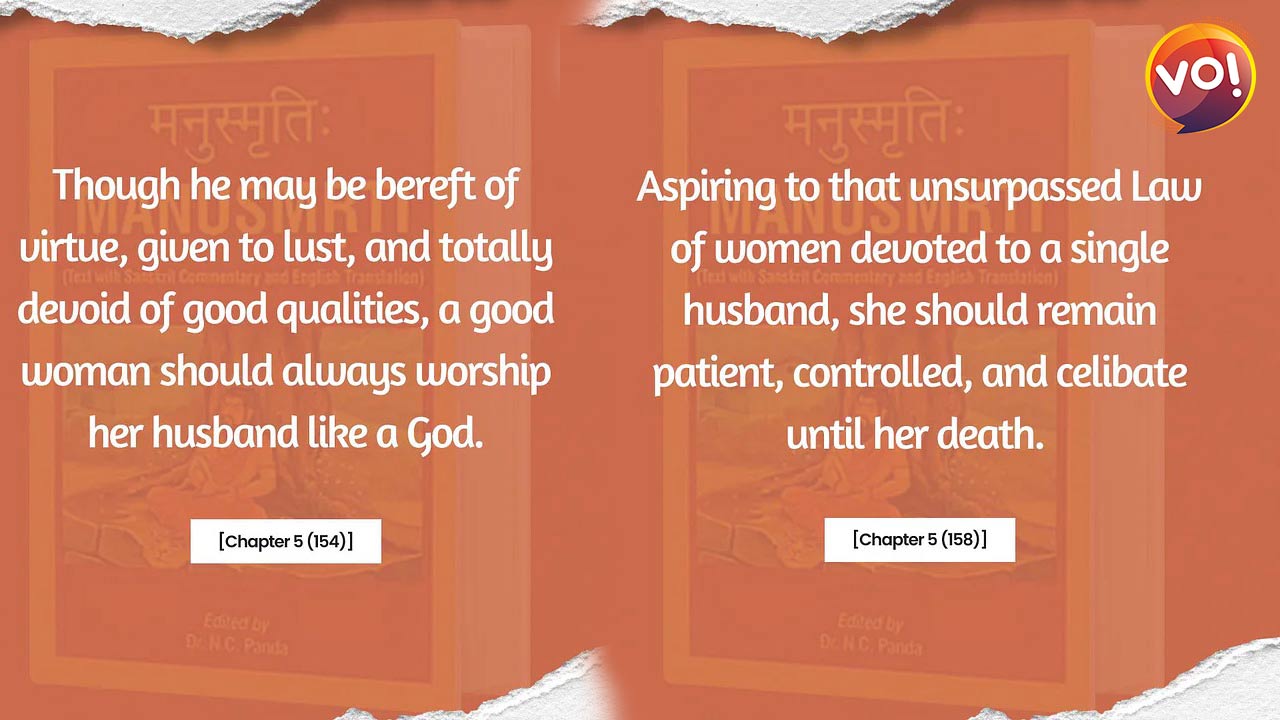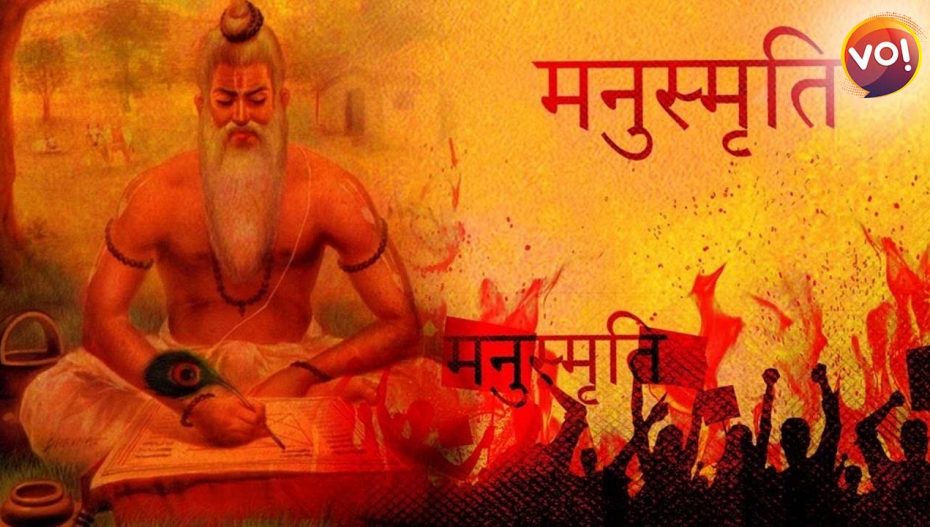The Talking Point: Manusmriti. Earlier this month, Delhi High Court judge Pratibha M Singh said women are “blessed” because Indian scriptures like Manusmriti give “very respectable position” to women. She advised working women to live in joint families to “share our resources” and not be “selfish” to live in a nuclear family.
The Ancient Text? Yes. Also known as the Mānava-Dharmaśāstra or Laws of Manu, it is one of the many legal texts among the many Dharmaśāstras of Hinduism. In ancient India, the sages often compiled their ideas societal norms and laws. It was one of the first Sanskrit texts to be translated into English in 1776, by British philologist Sir William Jones and was used to construct the Hindu law code for the East India Company administered enclaves.
Why Has This Caused A Row? The text has time and again been censured by liberalists and feminists for its views on “adarsh nari.” Simply put, it celebrates the selfless woman who ties herself to domesticity and reveres her husband. Good women are deemed as ones “who are seen but never heard.” Obviously, for 21st century women, leave alone the belligerent feminists, this calls for a review. Dalit feminist organisations declared that December 25 (1927) the day on which Dr Ambedkar burned the Manusmriti, should be observed as “Indian Women’s Liberation Day.”
And There’s Some Recent History: The embers remained from the October 2020 statement by Viduthalai Chiruthaigal Katchi (VCK) leader Thirumavalavan. He called for a ban on Manusmriti, stating it denigrates women. He was vilified for a statement taken out of context while BJP leader Khushbu Sundar thundered “not a single word (in the text) demeans women.”
Then? Another BJP leader, in an attempt to tone down Thirumavalavan’s seemingly justified attack stated: “We should take what is good and leave out what is bad. To make this an issue and call for a ban seems unnecessary.” he said.
Taking It Further: Dalit poet Kutti Revathi sharply countered this mediation and went all guns saying: “Manusmriti has contributed to sexism, how a family is viewed, and how a woman is treated. It must be understood in the context of years of oppression that women and Dalits have faced.”
According to Scholar Patrick Olivelle: He has translated Manusmriti into English. “Manu’s Code of Law: A Critical Edition and Translation of the Manava-Dharmasastra,” dwells on how the book remained colossally influential in determining the structure and the function of Indian society. It is is found in every collection of readings given to students of Indian culture, history, or religion in western universities.

Among Some Contentious Points Mooted Are:
1. Self-Control for a Woman: “By following this conduct, a woman who controls her mind, speech, and body obtains the highest fame in this world and the world of her husband in the next,” the translation reads.
2. Women Should Meet the Standards of Perfection: In Chapter 3, Manusmriti dictates the prerequisites a woman needs to fulfil to be deemed worthy of marriage. Celebrating exclusion based on set standards of beauty, body image and societal status, the text dictates that a man must not choose a woman who is specially-abled, “is a blabbermouth, or jaundiced-looking.”
3. Husband Is God, No Matter What: Manusmriti dictates that no matter what the man does, a woman has to be chaste in order to find herself a place in heaven.
4: No Right to Independence for a Woman: Vilification of women has been highlighted by portraying the woman as a dependent and vile creature requiring constant protection and guidance – initially by the father or brother and later by the husband and son. It propagates the idea that a woman doesn’t deserve independence and will always remain as the property of another man.
5: Women Must Be Guarded: Women have always been regarded as the guardians of dharma and transmitter of patriarchal values. It lists the various strategies men can use to guard their wives lest they “become disloyal towards their husbands.”
6: While Manusmriti allows men to remarry, it is strictly prohibited for the woman. It is stated that even when she withers due to illness or depression, she “must never mention even the name of another man.”
The Last Word: To each his or her own perception and inference but any text which calls for inequity, can do with some thinking over.
Also Read: NFHS-5 Data Gives Insight Into Misguided Women Empowerment In India













